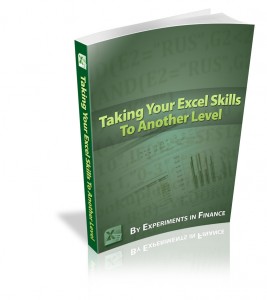I woke up yesterday to discover that my recent purchase of ICF, a real estate ETF, had shot up by 4% due to Blackstone Group’s purchase of Equity Office Properties Trust (EOP) for $36B, including $15B in debt in the largest private-equity deal, ever. Since EOP is a major component of the 31 REITs that comprises ICF, it, along with most other REIT ETFs, went up thanks to the announcement of the deal.
Being relatively new to making my own investment choices, I find it sort of astounding that two of my previous choices have also benefited from ongoing industry consolidation as well. Just a couple of months ago, Smithfield Foods (SFD) announced it was purchasing Premium Standard Farms (PORK), a purchase I’d made last year and had concluded I’d bought at too high a price.
The announcement allowed me to exit my position gracefully and with a profit. Nucor (NUE) has also indirectly benefited from all the M&A activity within the steel sector. I can’t point to a hard figure for how much its stock price increase has been driven by this activity, but certainly it seems anytime there’s speculation, NUE shoots up at least a few percentage points that day.
I don’t have any illusions of being a prescient stock picker. And the general consensus is that there are few if any value purchases to be made in the market these days.
So what gives?
Is it just that no matter where the market stands, there are always good bargains to be had somewhere? Sam Zell’s been hinting about how EOP has been trading at 80% of its asset value and his willingness to deal.
Is it that these companies really will benefit from purchasing rivals? Blackstone argues that office space is difficult to replace and anticipates a growing demand based on a growing economy, and EOP does own some prime and well-known buildings.
Or is it that there’s plenty of capital sitting on the sidelines just itching to make a higher return?
If you read the Wall Street Journal or other reputable finance journals, it’s this third choice that’s the most likely culprit. Maybe it all goes back to Greenspan’s comments about how he thought investors were becoming cavalier about accepting lower risk premiums and therefore all too willing to pay for overpriced assets. It’s similar to what’s been happening in the housing market, and it reminds me of something we experienced first-hand as well.
Last year, my husband and I considered purchasing a small business in lieu of working in the corporate world. We looked intensely for one for a good 6 months. A poor man’s version of a private equity deal, if you will.
We scoured Seattle talking to brokers and looking at possible candidates. But regardless of the industry, it seemed that everywhere we looked, small businesses were overvalued, and you were essentially buying a job (e.g. paying for your own salary) instead of a business. The business brokers we talked to (who all represented the sellers) explained that demand for businesses was sky high, driven by low interest rates, the continued presence of money in the area from the dot-com boom, and demand ex-employees from Boeing and elsewhere who’d been laid off. Since their age made finding another job difficult, but they didn’t have enough to retire, buying a small business in order to have a job seemed a good way for them to bide their time until they could afford to fully retire.
We concluded that within our budget range and, perhaps, choice of location, the timing just wasn’t right and the risk far too high for us to buy a business.
The question remains, though, about how far investors should be willing to ride these incoming waves of consolidation. As a value investor, should you already have bailed out of the market? Or not until the public en masse decides the market is finally right to jump back in?
Personally, I think I’ll be trying to implement Graham’s advice by decreasing my positions in ICF and perhaps a few other holdings, but not exiting altogether. Why? Because the market is never predictable, and there’s always the chance that by exiting completely, I face a different sort of risk, that of losing my assets to inflation. (Update: Today, I decided to close my position in ICF altogether. Here’s why.)
Any thoughts?
***************************************************
Look Good at Work and Become Indispensable Become an Excel Pro and Impress Your Boss

***************************************************

